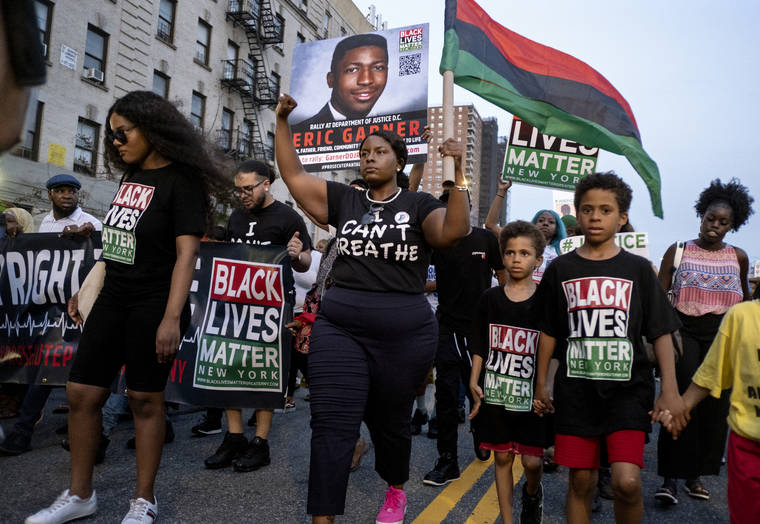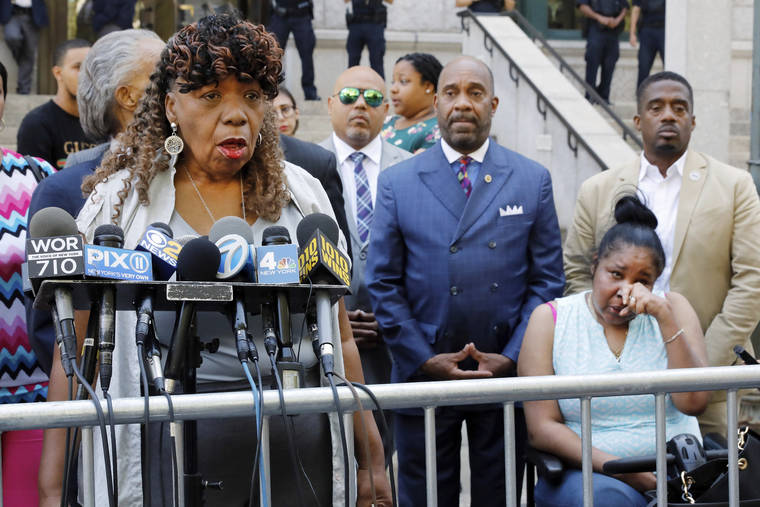NEW YORK — Eric Garner’s mother, speaking Wednesday on the five-year anniversary of his chokehold death, urged the New York City police commissioner to fire the officer involved.
“We’ve been failed by every other source,” Gwen Carr said on CBS. “He should be fired. At least that would give me closure.”
When federal prosecutors summoned her family to disclose their findings, Carr said, “We thought we were going to get some positive news.”
“There is no justice for Eric,” she added. “How do you forgive? … As a Christian you’re supposed to forgive.”
Federal prosecutors said Tuesday that they won’t bring civil rights charges against Daniel Pantaleo, the white officer involved in the 2014 death of Garner, a black man who refused to be handcuffed after being accused of selling loose, untaxed cigarettes.
His dying words — “I can’t breathe” — became a national rallying cry against police brutality.
The decision to end the investigation was made by Attorney General William Barr and was announced just as the statute of limitations was set to expire.
Garner’s family was incensed by the decision, the latest from a Justice Department under President Donald Trump that has scaled back the use of consent decrees aimed at improving local police departments that were found to have violated civil rights.
Police Commissioner James O’Neill is expected to decide Pantaleo’s fate by Aug. 31 after receiving a report from the administrative judge overseeing his departmental hearing. Potential punishment ranges from loss of vacation days to termination.
Chokeholds are banned under police policy. Pantaleo maintained he used a legal takedown maneuver called the “seatbelt.”
Pantaleo’s lawyer, Stuart London, said Tuesday that the officer “is gratified that the Justice Department took the time to carefully review the actual evidence in this case rather than the lies and inaccuracies which followed this case from its inception.”
In the years since Garner’s death, the NYPD has made sweeping changes on how it relates to the communities it serves, ditching a policy of putting rookie officers in higher-crime precincts in favor of a neighborhood policing model that revolves around community officers tasked with getting to know New Yorkers.



